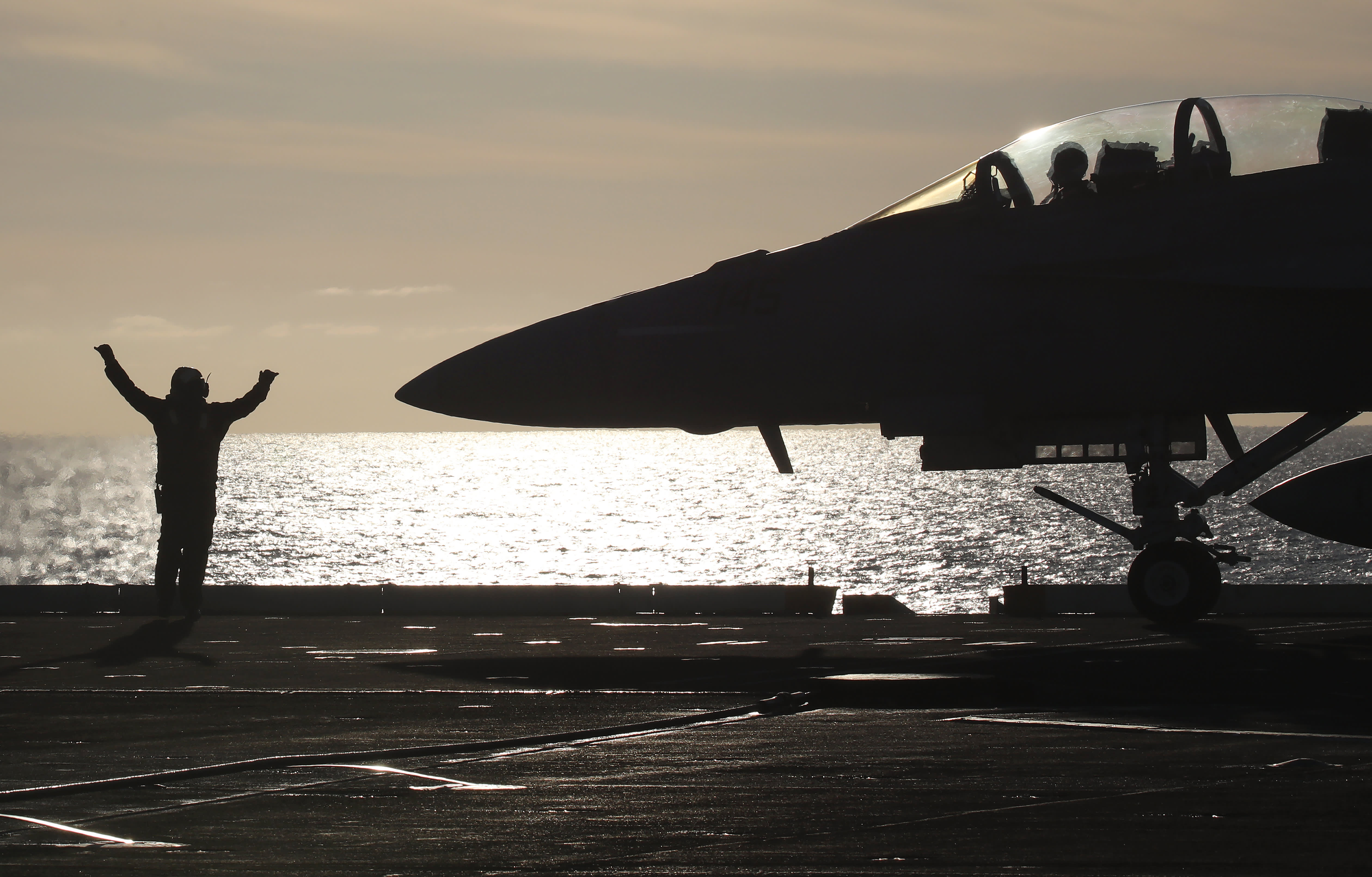A pilot works in an F/A-18F Super Hornet fighter aircraft, aboard the USS Nimitz (CVN 68) aircraft carrier while at sea, on January 18, 2020 off the coast of Baja California, Mexico.
Mario Tama | Getty Images
Boeing CEO Dave Calhoun said Wednesday that he was confident that whoever wins the White House in November — whether it’s President Donald Trump or former Vice President Joe Biden — will continue supporting the defense industry.
“I think both candidates, at least in my view, appear globally oriented and interested in the defense of our country and I believe they’ll support the industries,” Calhoun said on a media call. “They’ll do it in different ways and they’ll have different teams for sure, but I don’t think we’re going to take a position on one being better than the other.”
The Trump administration, lawmakers and political candidates are under increasing pressure to come up with ways to aid the U.S. through the coronavirus pandemic and accompanying economic turmoil.
Defense spending is taking on new importance for the aerospace giant, one of the largest U.S. defense contractors, as its commercial aircraft unit reels from the pandemic. The turmoil drove Boeing to a $2.4 billion loss in the second quarter, prompting further cuts to production of planes like the 787 and the possibility of job reductions beyond the roughly 19,000 people the company said are leaving Boeing.
Revenue for Boeing’s defense and space unit was little changed from the second quarter a year ago at $6.6 billion, but sales at its commercial aircraft unit plunged by more than 65% year over year to $1.6 billion.
The trend has been echoed at other companies like Raytheon Technologies that have both commercial and defense businesses.
“Overall, while the pandemic continues to deeply impact our commercial aero business, our balanced portfolio includes a resilient defense business that will help us offset near-term commercial aero headwinds,” said CEO Greg Hayes during an analyst call Tuesday.
The White House didn’t comment. Representatives for both Trump’s and Biden’s presidential campaigns didn’t immediately comment.
Defense contractors have good reasons to be concerned. Across the country, incumbent Republicans are being dragged down by the president’s poor approval ratings, despite efforts by some candidates to distance themselves from Trump’s positions. Still, most analysts now believe Democrats are well positioned to expand their majority in the House and, increasingly, to win the four net Senate seats they need to take control of the upper chamber.
Boeing’s Calhoun brushed off the possibility of an impact to the industry because of a potential shift in Congress, saying lawmakers “tend to come together” on policies that support jobs.
Like many Fortune 100 companies whose bottom lines are heavily impacted both by government spending and federal regulation, Boeing is careful not to wade too far into partisan politics, or to give the appearance that it favors one party over the other.
So far in the 2020 election cycle, Boeing’s political action committee has donated $1.1 million to federal candidates. Of that, 47% has gone to Democrats and 53% to Republicans, according to the Open Secrets campaign finance tracking website.

